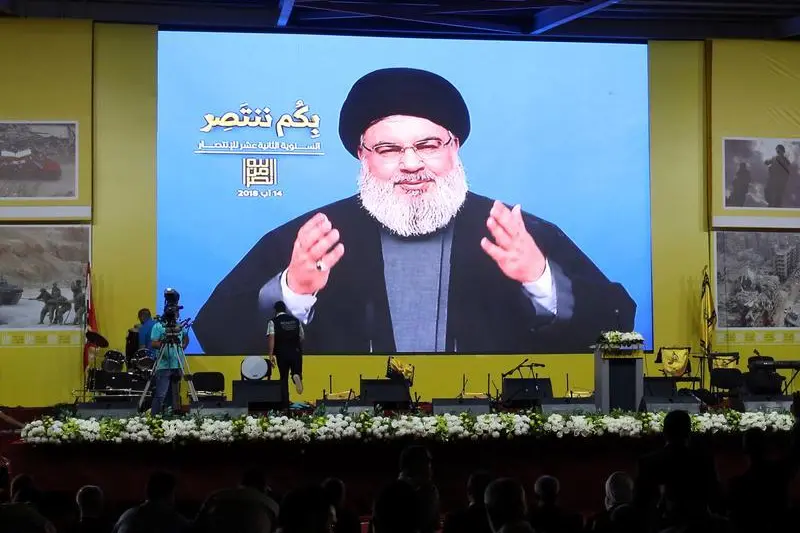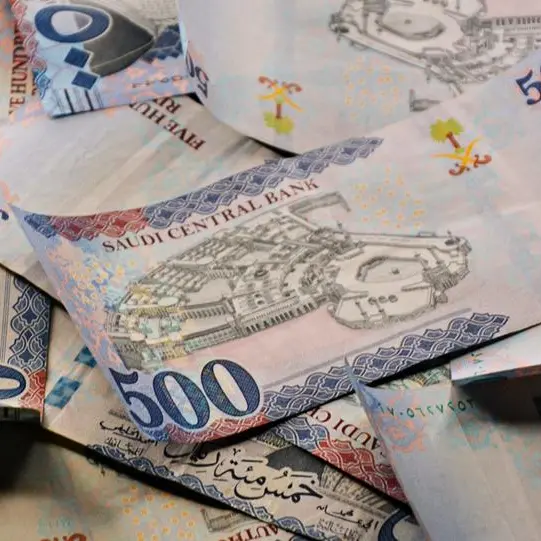PHOTO
What alternative reality is Hassan Nasrallah living in? Lebanon is going up in flames, yet the Hezbollah leader ignites new fires every time he opens his mouth.
Nasrallah drapes himself in the robes of national savior for bringing ships full of Iranian diesel to Lebanese shores. He invites citizens to shed tears of gratitude on behalf of our Persian benefactors. But Iran isn’t giving this oil away, and since nobody else wants to buy internationally sanctioned Iranian oil, who is doing a favor for whom?
In normal nations people don’t feel moved to celebrate the arrival of diesel tankers, as if Lebanon were a starved and flea-ridden desert island that hadn’t seen fresh water for six months. Such unilateral stunts merely undermine Lebanon’s parliament and institutions, which are supposed to be the sovereign parties deciding such matters.
US Ambassador Dorothy Shea has meanwhile — belatedly — been laboring over a proposal to supplyLebanon with electricity via Jordan, using Egyptian natural gas and World Bank funding. Nasrallah is understandably furious at the prospect of a project that may actually improve Lebanese lives, particularly after his decades of efforts to exclude Arab states from the Lebanese arena. He angrily accused the ambassador of “complicity against the Lebanese people,” even as his ally, President Michel Aoun, thanked her for her efforts. Frustratingly for Hezbollah, Lebanon can import Egyptian fuel or Jordanian electricity without violating international sanctions and becoming a Taliban-style pariah state.
Nasrallah blusters incoherently about an operations room in the US Embassy masterminding Lebanon’s economic chaos and fuel shortages. We should pay attention here, since Nasrallah knows better than anybody where fuel shortages are being managed from, with his own officials overseeing the smuggling of scarce Lebanese fuel across the border into Syria. Please tell us why Lebanon is so desperately short of fuel in the first place, Mr. Nasrallah.
Doesn’t Nasrallah realise that, far from fearing foreign meddling, many citizens actually wish foreign powers would come in and run Lebanon’s economy in place of its criminal and tragi-comically incompetent politicians? Remember those Lebanese petitioning Emmanuel Macron to march in and take over before it was too late? Even if it turned out that Mossad agents were hidden away in this “operations room” exerting all their powers to sabotage the Lebanese economy, it would still be impossible for them to wreak more damage than Messrs Aoun, Nasrallah and Berri.
Nasrallah denounces citizens as traitors for even talking to foreign embassies, but by that criterion he is Lebanon’s supreme traitor. Nasrallah doesn’t just talk to foreigners, he is in the pay of a foreign nation, acting according to the destructive agenda of that nation, and boasting about doing so. How would he suggest we punish traitors?
Nasrallah boasts that he will import Iranian products in “broad daylight.” Hooray! What fearlessness! That tapping sound you can hear is US Treasury officials drafting new financial penalties against Lebanese institutions likely to be violating international sanctions by importing Iranian oil.
Nasrallah menacingly warns that these tankers bearing Iranian oil should be considered sacrosanct Lebanese territory. How exactly does he imagine Hezbollah could retaliate if the US or Israel did choose to sink his precious boats? And why is Nasrallah so much more concerned about the wellbeing of these ships than Lebanon itself? This is the man who let nearly 3,000 tons of explosives in Hezbollah-controlled warehouses blow up half of Lebanon’s capital. Israel, meanwhile, bombs Hezbollah arms depots and bases in Syria and Israeli surveillance planes circle over Beirut while Nasrallah cowers impotently in his underground bunker, using the entire Lebanese nation like a human shield.
The more Iranian entities become enmeshed in Lebanon’s economy, and the more “Hizb Al-Shaitan” (the party of the Devil) embroils Lebanon in narcotics, arms proliferation, terrorism and organized crime, the more Lebanon will find itself cut off from the international system — which is exactly what Tehran is seeking to achieve. Each step Lebanon takes into Iran’s poisonous embrace is another step away from Lebanon’s Arab identity and its cosmopolitan and inclusive culture.
Nasrallah offers the US’s “humiliating and historic defeat” in Afghanistan as evidence of what reliance on Washington achieves — even as he does everything in his power to turn Lebanon into Afghanistan. He spouts endlessly about not allowing Lebanon to be humiliated, when he is our national humiliation personified. He shamelessly blames the Lebanese state for people’s woes, and he’s absolutely correct that the kleptocratic Lebanese state has failed us a million times over — but he is the Lebanese state. These failures, thefts and calamities are his own, the puppet master whose own strings are being pulled from abroad. Hezbollah offers no magic cures for healing Lebanon, because Hezbollah itself is the disease.
What is the purpose of your Islamic resistance, “Sayyid” Nasrallah? Citizens these days just laugh at your ridiculous bluster that Israel will shortly collapse and the Muslim world will soon reach Jerusalem. The only thing likely to reach Jerusalem is Lebanon’s petrol queue.
Lebanon has always enjoyed one of the most open climates for public debate and democratic participation. These values must be our liberation: In upcoming elections who except those on the payroll would vote for Hezbollah and their corrupt cronies?
“Hizb Al-Shaitan” seeks to exacerbate sectarian divides to the point where we want to throttle each other, but the problem isn’t that Christians, Sunnis, Shiite and Druze can’t live together — rather, figures like Gebran Bassil and Nasrallah have exploited their sectarian power bases at the expense of national unity.
Conversely, Nasrallah, Bassil, Aoun and all Lebanon’s other factional warlords could be a supreme force for national unity — if the whole nation came together and voted these criminals out of power once and for all.
- Baria Alamuddin is an award-winning journalist and broadcaster in the Middle East and the UK. She is editor of the Media Services Syndicate and has interviewed numerous heads of state.
Copyright: Arab News © 2021 All rights reserved. Provided by SyndiGate Media Inc. (Syndigate.info).





















